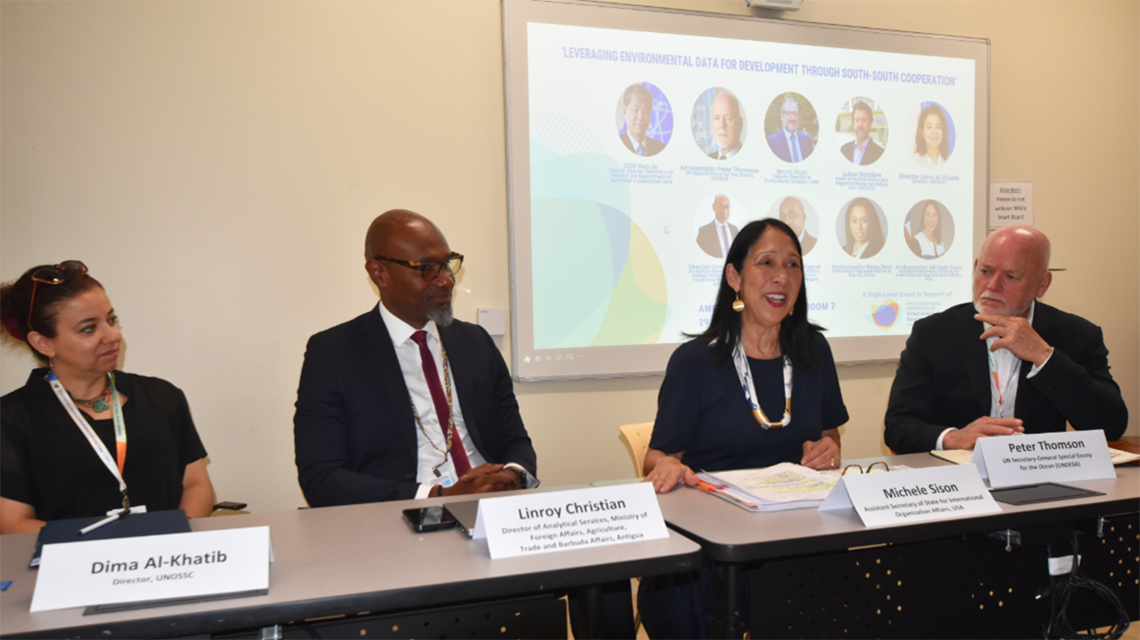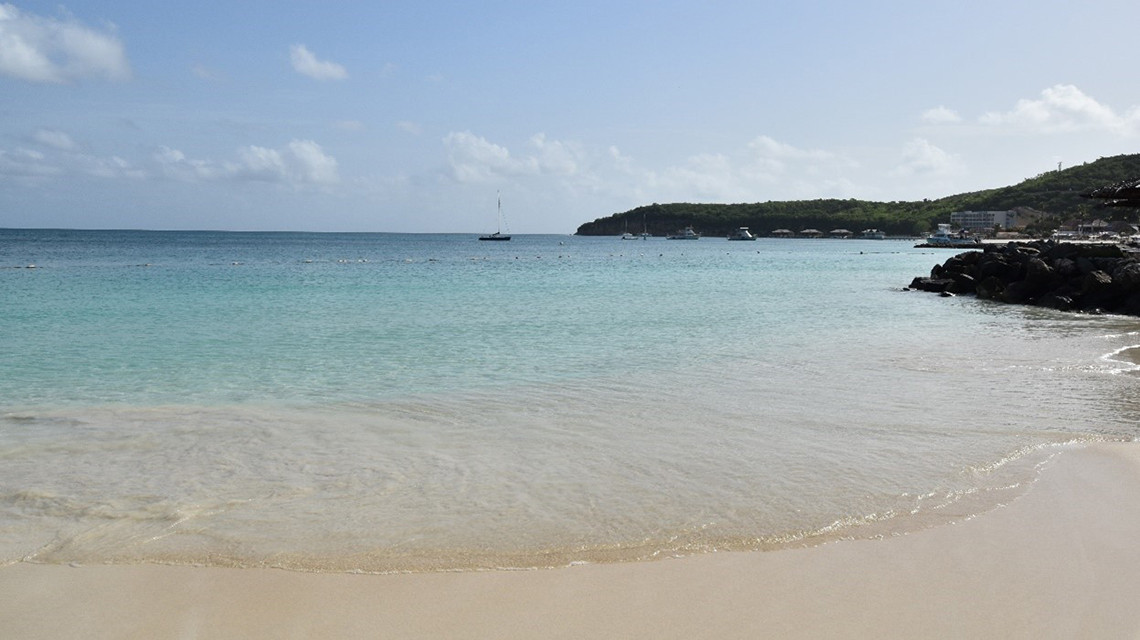The IAEA announced its commitment of €13.7 million in support to Small Island Developing States (SIDS) at the United Nations 4th International Conference on SIDS in May 2024. Conference delegates heard how 26 SIDS will benefit from these funds in 2024–2025 through 49 technical cooperation projects addressing ocean pollution; microplastics monitoring; cancer care; nutrition; and water resource management.
“The IAEA has long recognized the urgent need to assist SIDS in building their capacity to address their challenges and vulnerabilities. Through the IAEA commitment, we want to unlock the full potential of our innovative solutions and help concretely build a more resilient, sustainable and prosperous future for SIDS,” said Hua Liu, Deputy Director General and Head of the Department of Technical Cooperation, IAEA, addressing the official conference plenary.
Convened every ten years, the International Conference on SIDS brings together SIDS representatives and members of the international community to take stock of small islands’ pressing needs and find new paths to tackle common obstacles. SIDS delegates described unique and increasing barriers to development. The COVID-19 pandemic and disasters, including those caused by climate change, are disproportionately affecting SIDS.
This latest IAEA commitment to SIDS follows years of support at the national and regional levels. At the ‘Interactive Dialogue’ session on addressing SIDS’ health crises, the IAEA further emphasized the pivotal nature of nuclear techniques in supporting human health, from improving cancer care and non-communicable disease diagnosis, to tackling nutrition and ensuring food safety by monitoring harmful contaminants and residues in food.
Although the severe effects of converging crises on SIDS are evident, there is a distinct lack of comprehensive historical data to fully understand the implications over time and across regions. At the conference, the IAEA organized a side event with UN Environment Programme, UN Office for South-South Cooperation, Antigua and Barbuda and the United States, to discuss with SIDS delegates how best to harness environmental data for the benefit of SIDS.
Panellists considered solutions through a lens of South-South and triangular cooperation to help scale up successes. The IAEA employs this methodology in its Sub-Regional Approach to the Pacific Islands (SAPI), through which tailored support is provided at the sub-regional level, encouraging the sharing of resources and expertise among neighbouring countries. Side event attendees heard how a South-South approach to data helps the harmonized collection of data that can easily be compared for analyses at the regional level. This is particularly important for studying shared resources such as the ocean.






